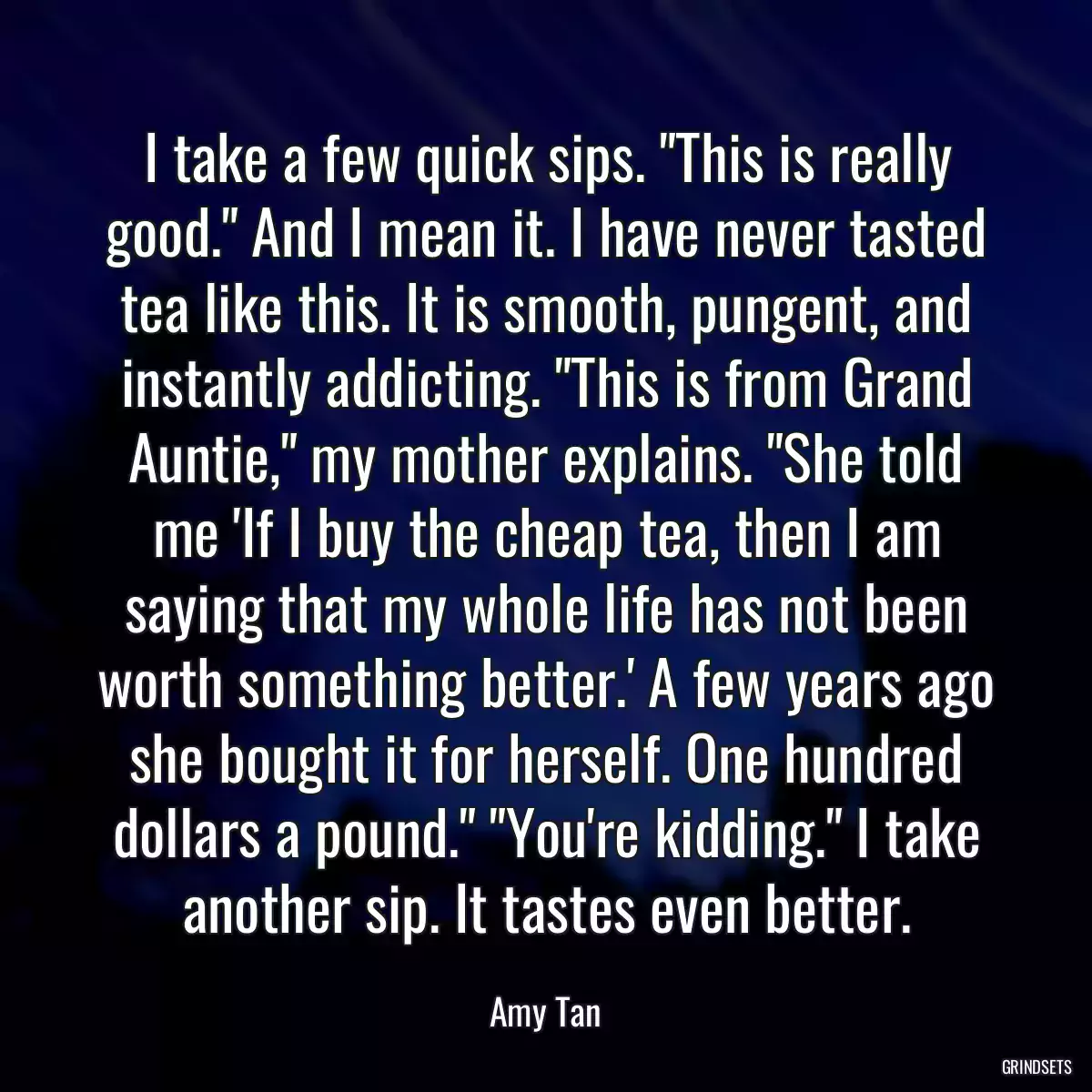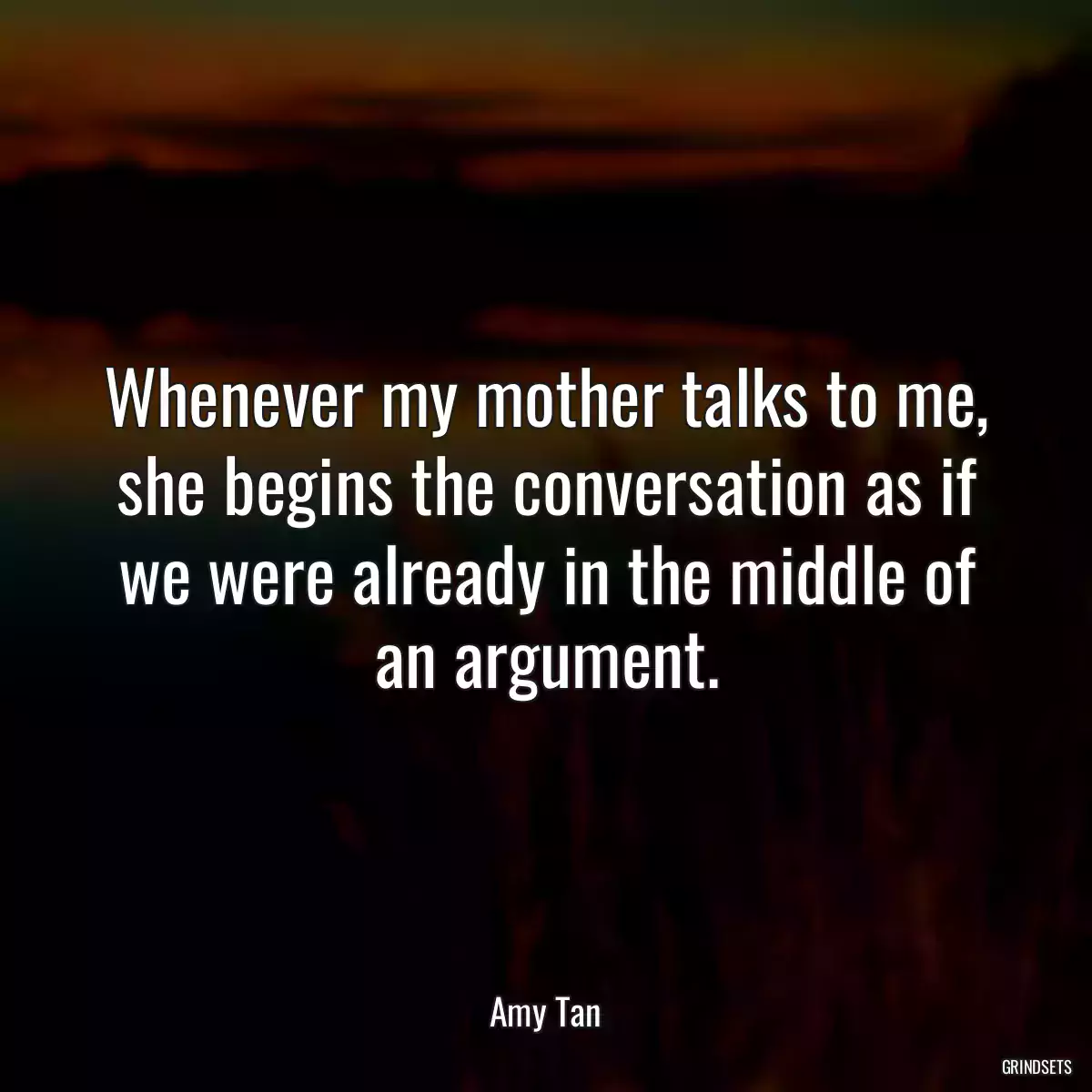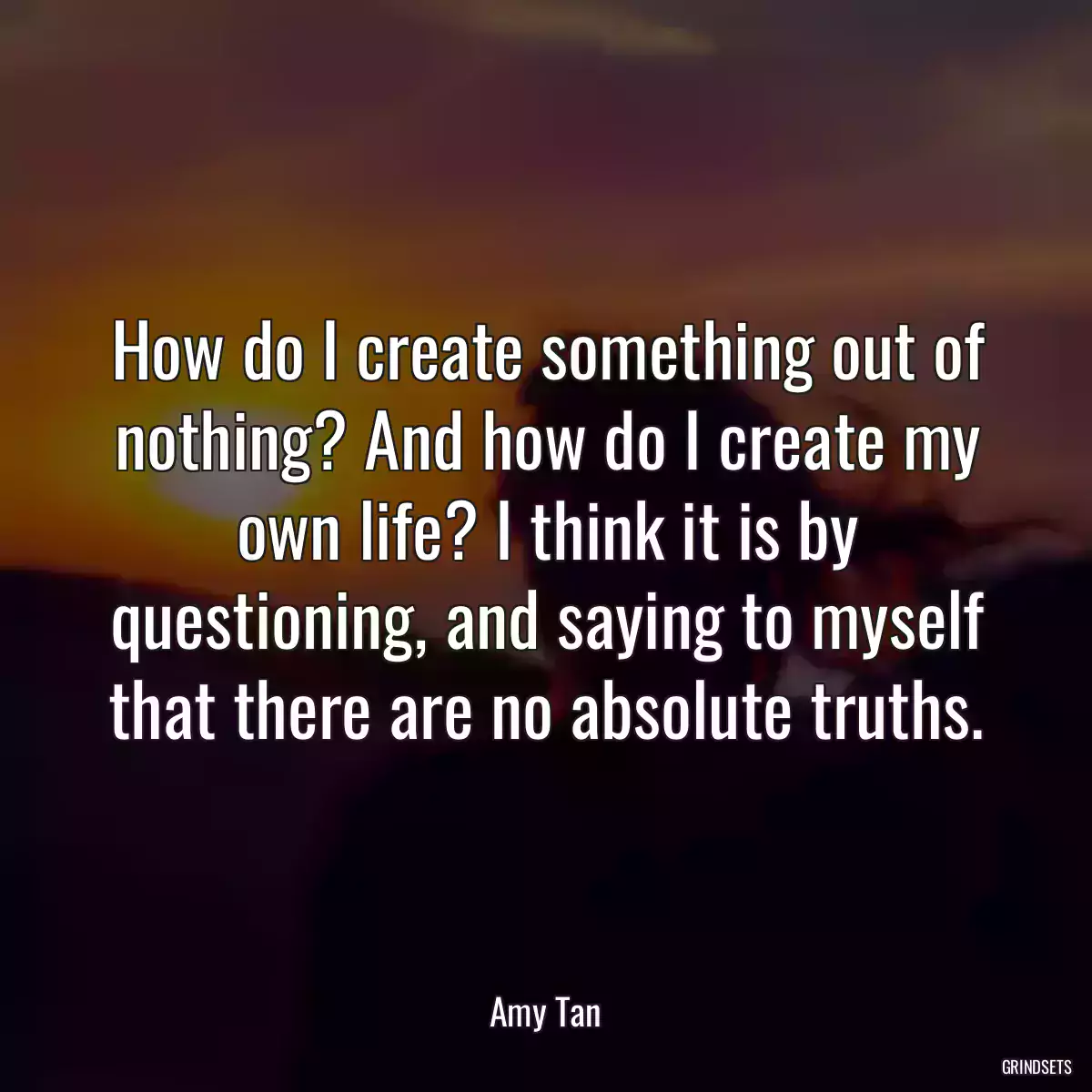
I take a few quick sips. "This is really good." And I mean it. I have never tasted tea like this. It is smooth, pungent, and instantly addicting. "This is from Grand Auntie," my mother explains. "She told me 'If I buy the cheap tea, then I am saying that my whole life has not been worth something better.' A few years ago she bought it for herself. One hundred dollars a pound." "You're kidding." I take another sip. It tastes even better.

